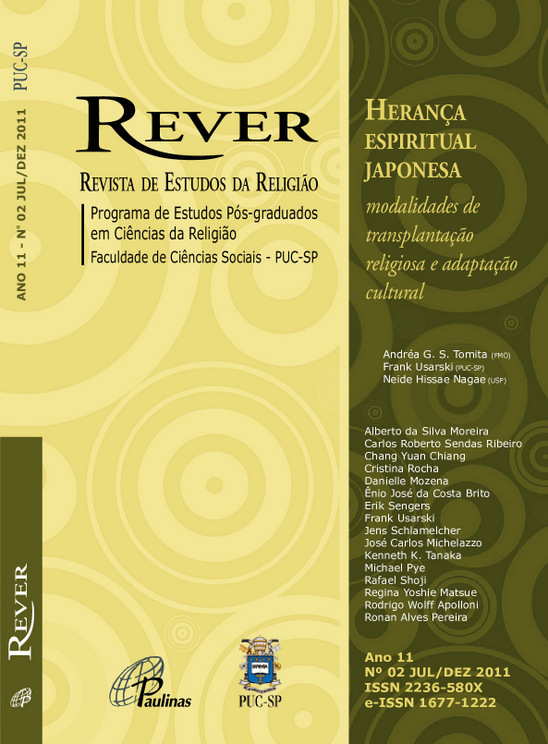Disaffection and surrender: essential attitudes of Zen-Buddhist meditation and their resonance in the thoughts of Eckhart and Heidegger
Keywords:
practice, detachment, surrender, nonduality, enlightenessAbstract
The science and media had opened great space for meditation, showing especially the physical and mental benefits into mechanic daily life of our age. Although it is not possible to deny these benefits, the meditative practice, especially the Master Dōgen’s Zazen, has indeed much more to do with a little less visible and attractive side. In the place of quick benefits, there is pain and the strangeness, but also the slow transformation as expressions of continuous exercise of two basic attitudes of Way’s practitioner: the detachment of things’ delusive stability and the surrender to things’ emptiness. These attitudes have amazing parallels with Master Eckhart’s mystic and with Martin Heidegger’s thought, which have stimulated, in general sense, the dialogue between West and East and, in particular sense, have been the great focus of Japanese thinkers from Kyoto School as well as of an expressive secondary literature from there resultant.Metrics
Metrics Loading ...
Downloads
Published
2012-01-06
How to Cite
Michelazzo, J. C. (2012). Disaffection and surrender: essential attitudes of Zen-Buddhist meditation and their resonance in the thoughts of Eckhart and Heidegger. REVER: Journal for the Study of Religion, 11(2), 141–171. Retrieved from https://revistas.pucsp.br/index.php/rever/article/view/8138
Issue
Section
Seção Temática
License

This work is licensed under a Creative Commons Attribution-NonCommercial 4.0 International License.
Authors who publish in this journal agree with the following terms:- Authors retain copyright, but grant the journal the right of first publication, with the work simultaneously licensed under the Creative Commons BY-NC License.
- Authors are authorized to assume additional contracts separately, for non-exclusive distribution of the work published in this journal (e.g., publishing in an institutional repository or as a book chapter), as long as with acknowledgment of authorship and first publication in this journal.


